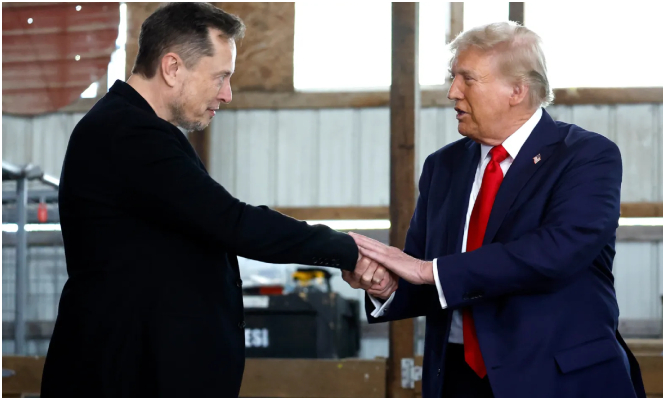The Trump administration secured a legal victory on Tuesday, February 18, 2025, after a federal judge ruled that employees of the Department of Government Efficiency (DOGE), a unit linked to Elon Musk, can continue accessing sensitive student loan data from the U.S. Department of Education (DOE).
The ruling comes in response to a lawsuit filed by the University of California Student Association (UCSA), which represents over 230,000 students across the university’s nine undergraduate campuses.
The student group sought a temporary restraining order (TRO) to block the DOE from sharing student data with DOGE and to recover any data already accessed.
However, in a memorandum opinion and order issued Monday, U.S. District Judge Randolph Moss, an appointee of former President Barack Obama, rejected UCSA’s request, ruling that the organization failed to demonstrate “irreparable harm” from DOGE’s access to the data.
Judge: Claims of Harm Are ‘Sheer Speculation’
UCSA’s lawsuit, filed on February 7 in the U.S. District Court for the District of Columbia, argued that DOGE employees having access to student loan data violated federal privacy laws and harmed students by depriving them of legal protections. Three days later, the group filed a 45-page motion for a TRO, which the government opposed. A hearing was held on February 14.
In his ruling, Judge Moss dismissed the students’ claims as “entirely conjectural,” stating that the plaintiffs failed to provide any evidence beyond “sheer speculation” that DOGE staff would misuse or improperly disseminate the data.
“UCSA is correct that a disclosure of information generally cannot be ‘undone,’ but that is not sufficient to show irreparable harm,” the opinion reads. “What UCSA overlooks is that the context of the dissemination matters.”
The judge further noted that courts typically recognize irreparable harm only when confidential information is made public or falls into the hands of individuals with no obligation to protect it—circumstances that were not present in this case.
DOGE Assurances Credited in Ruling
Judge Moss relied heavily on sworn statements from DOGE employee Adam Ramada, who asserted that:
- Only six DOGE employees have access to DOE data.
- All employees have received or will receive training on ethics and security and are bound by privacy laws.
- No data has, “to his knowledge,” been shared with any unauthorized individuals.
The court also accepted the government’s position that DOGE’s involvement was limited to auditing DOE programs for waste, fraud, and abuse, identifying contracts and grants inconsistent with administration policy, and ensuring tax-related data was used within legal parameters.
“Notably, all of the ‘applicable laws and regulations’ … impose strict limits on the use and disclosure of Privacy Act protected records and tax return information, and they impose criminal penalties and potential civil liability on those who willfully ignore their obligations,” Moss wrote.
UCSA’s Concerns Over Immigration Enforcement Dismissed
UCSA’s motion warned that DOGE access “poses a risk” of data misuse, including:
- Possible use of student records for immigration enforcement.
- Potential mishandling that could result in identity theft.
- Broader unauthorized dissemination of personal information.
Moss was unconvinced, stating that the courts must “presume the government will exercise its powers responsibly and with due regard to affected individuals.”
The ruling marks a significant win for the Trump administration, solidifying DOGE’s authority to handle DOE data despite privacy concerns raised by advocacy groups.
Judge Moss’ decision clears the way for continued DOGE involvement in federal student loan oversight, but legal challenges over the administration’s controversial approach to agency staffing and executive power are expected to continue.

